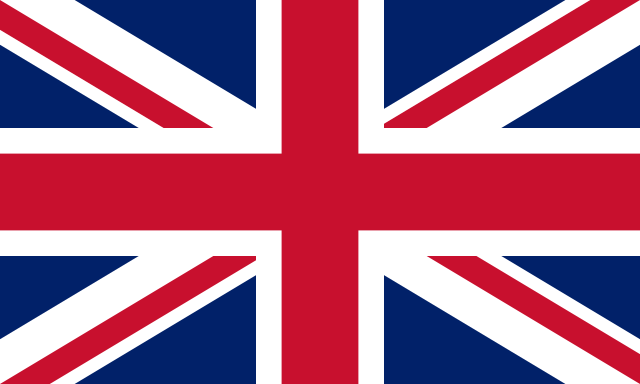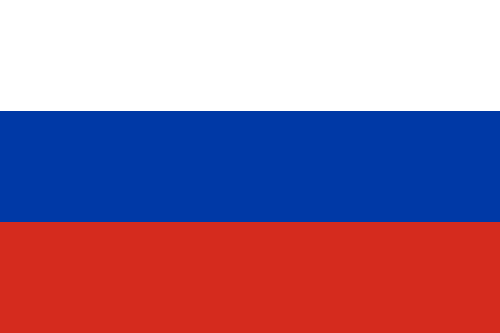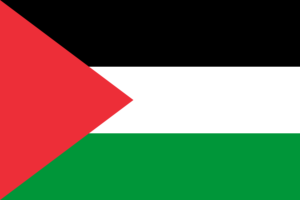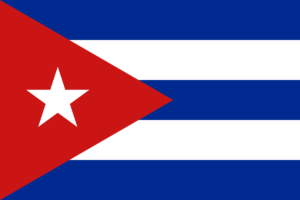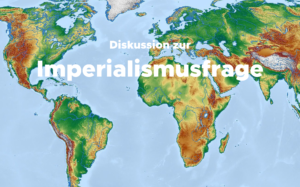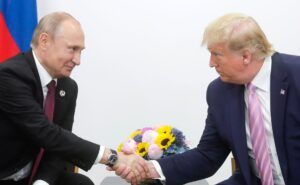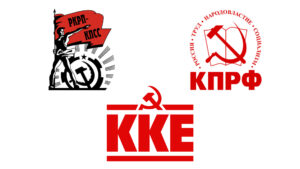„Der nationale Befreiungskampf ist eine Form des Klassenkampfes“. Interview mit Anwar Khoury – Teil 1
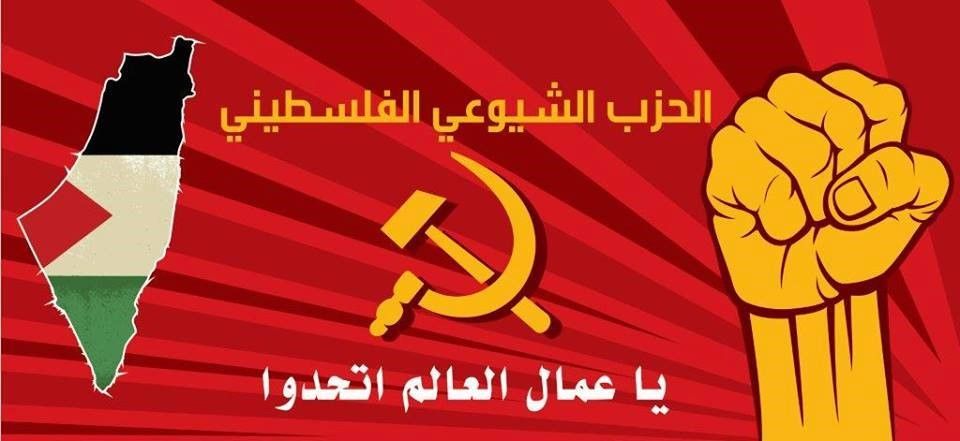
Das folgende Interview mit Anwar Khoury, Mitglied des ZK der Palästinensischen Kommunistischen Partei (PalCP), entstand im Zuge mehrerer Gespräche mit Genossen der PalCP im Herbst 2023 und im Frühjahr 2024. Obwohl die PalCP im Schatten der größeren und bekannteren linken Organisationen PFLP, DFLP und PPP steht, halten wir sie für einen relevanten und interessanten Akteur.
Das liegt vor allem an ihren inhaltlichen Positionen: 1. Hat sie die Zweistaatenlösung verworfen und dafür Selbstkritik geleistet, was ihr hoch anzurechnen ist. 2. hat sie sich historisch gegen den Gorbatschow’schen Verrat und rückblickend auch gegen den Chruschtschow’schen Revisionismus gestellt, ohne zugleich auf einen maoistischen oder hoxhaistischen Kurs zu schwenken. Und 3. unterstützt sie heute den real existierenden palästinensischen Widerstand inklusive seiner islamischen Fraktionen und bezieht sich zugleich positiv auf die „Achse des Widerstands“.
Wir wollen mit diesem Interview den Genossen unsere beschränkten Möglichkeiten zur Verfügung stellen, ihre Positionen stärker in den deutschen und englischen Diskurs zu tragen – und wir wollen als KO und als Teil der deutschen und internationalen kommunistischen Bewegung davon lernen. Dafür haben Genossen von uns bereits in der Vergangenheit auf die Positionen der PalCP aufmerksam gemacht und wir haben als Organisationen zuletzt Stellungnahmen von ihr veröffentlicht, eine zum Jahreswechsel und eine zum Tag des Bodens.
In Teil 1 des Interviews wird die PalCP vorgestellt, es geht um die sog. Zweistaatenlösung, um die Strategie der nationalen Befreiung und um die Alliierten im antikolonialen und antiimperialistischen Kampf in der Region. Teil 2 dreht sich um die Einschätzung der PLO und der verschiedenen Widerstandsfraktionen, wie der Hamas und der PFLP, sowie um die aktuelle Lage im Gazastreifen und der Westbank. Das Interview entspricht dem Stand von Anfang April 2024, fand also vor dem iranischen Gegenschlag statt. Es ist autorisiert und wurde geführt von Noel Bamen.
Noel Bamen: Die heutige Palästinensische Kommunistische Partei (PalCP) entstand 1991, als sich ein großer Teil der damaligen KP Palästinas in Palästinensische Volkspartei (PPP) umbenannte. Was führte dazu und was war der Grund für die Trennung?
Anwar Khoury: Zunächst möchte ich darauf hinweisen, dass die erste kommunistische Zelle in Palästina im Jahr 1919 gegründet wurde. Wegen der Gründung Israels waren die Kommunisten auf drei Regionen verteilt: Erstens den Staat Israel; dort arbeiteten sie unter dem Namen Israelische Kommunistische Partei weiter. Zweitens im Westjordanland, wo sie nach dem Anschluss an Jordanien unter dem Namen Jordanische Kommunistische Partei tätig wurden. Und drittens im Gazastreifen unter dem Namen Palästinensische Kommunistische Partei im Gazastreifen. 1982, nach der Anerkennung Palästinas durch die Arabische Gipfelkonferenz, wurden die beiden Teile der Partei im Westjordanland und im Gazastreifen als Palästinensische Kommunistische Partei vereint.
Nach dem Gorbatschow’schen Verrat wurde im Namen der Partei eine fadenscheinige Konferenz abgehalten, auf der beschlossen wurde, den Marxismus-Leninismus aufzugeben. Das Wort „Kommunistisch“ im Namen der Partei wurde durch „Volk“ ersetzt und die Satzung wurde geändert, um das „humanistische Denken“ zu einer der Quellen der „Analyse“ zu machen; Hammer und Sichel wurden als Symbole der Partei aufgegeben. Dementsprechend versammelten sich diejenigen, die der Ideologie treu blieben, und gründeten die Partei unmittelbar nach dieser unheilvollen Konferenz neu.
Diese Spaltung und Neugründung hatte in erste Linie ideologische Gründe. Aber auch in der Realpolitik gingen wir völlig andere Wege: So haben wir Oslo und seine Institutionen, anders als die PPP, nie anerkannt. Daher, und das ist ein wichtiger Punkt, erhalten wir auch keinerlei Finanzierung von der Palästinensischen Autonomiebehörde (PA), weil wir Oslo und alles, was daraus resultierte, als einen Verrat an der palästinensischen Sache betrachten und das auch öffentlich kundtun.
Parallel zur PalCP entstand 1982 auch die Revolutionäre Palästinensische Kommunistische Partei (RPalCP).
Genau. Damals gab es eine Art Putsch innerhalb der aus der jordanischen Partei hervorgehenden PalCP. Dieser Putsch ging von Bashir al-Barghouthi aus, der die PalCP daraufhin als Generalsekretär führte und sie später auch in die PPP umwandelte. Einige, die sich gegen diesen Kurs stellten, sammelten sich um Arabi Awwad und gründeten die RPalCP. Sie sahen den bewaffneten Kampf als das zentrale strategische Mittel an und nahmen ihn deshalb auch bereits 1982 auf. Sie kämpften auch im Libanon gegen die israelische Invasion. Die Zahl der Genossen war allerdings immer gering und heute sind sie zu klein, um eigenständig zu kämpfen. Wir haben Kontakte zu ihnen und streben im Sinne der Einheit aller Kommunisten auch die Zusammenarbeit bzw. Vereinigung mit ihnen an. Allerdings kam sie bis heute nicht zustande, weil sie nach wie vor den bewaffneten Kampf als primäre Kampfform begreifen, während wir der Meinung sind, dass alle Kampfformen wichtig sind und von der Kommunistischen Partei beherrscht und umgesetzt werden müssen.
Zurück zur PalCP: Wie lief eure Entwicklung nach der Neugründung 1991?
Im letzten Jahrzehnt des 20. Jahrhunderts und im ersten Jahrzehnt des 21. Jahrhunderts arbeitete unsere Partei in zwei Richtungen: Die erste bestand darin, die Parteiorganisation zu stärken, und die zweite darin, unserer Partei internationale Anerkennung zu verschaffen. Beides ist uns gelungen.
Was heißt das konkret?
Zunächst innenpolitisch: In Palästina muss man eine zentrale Sache verstehen, und zwar dass zu der Zeit, als Arafat den Oslo-Verrat begangen hat, alle Gewerkschaften unter kommunistischer Führung standen. Leider aber haben die Kommunisten sie infolge von Oslo und ihrer Unterstützung dafür verkauft und verraten. Wir haben heute zwei oder drei kleine Gewerkschaften, in denen wir arbeiten. Außerdem verfügen wir über eine gute, kleine, aber starke Jugendorganisation. Und wir arbeiten auf verschiedenen Feldern langsam, aber kontinuierlich und wachsen stetig.
Auf internationaler Bühne nehmen wir seit Jahren regelmäßig und ohne Unterbrechung am Internationalen Treffen der Kommunistischen und Arbeiterparteien teil. Was die arabische Welt angeht: Wir hatten hier lange keine einheitlichen Positionen in vielen Fragen, aber langsam wird es besser. Es gibt Treffen, aber noch kein etabliertes, regelmäßiges und offizielles Format. Es gibt aber auch nach wie vor zwei Strömungen in der Region: die Gorbatschow’sche Strömung auf der einen und uns, die revolutionäre, auf der anderen Seite.
Wie sieht es mit Beziehungen zur israelischen KP aus?
Persönliche Beziehungen gibt es einige, sowohl zu Persönlichkeiten der KP als auch zu welchen der Demokratischen Front für Frieden und Gleichheit (Hadash), die von der KP geführt wird. Aber seit der Gründung der PalCP 1982 gab es nie offizielle Beziehungen zur israelischen KP.
Wieso nicht?
Sie sind einfach nie zustande gekommen. Zum Tangotanzen braucht es stets zwei. Wir haben versucht, eine Beziehung aufzubauen. Die Frage sollte also an die Israelis gerichtet werden, nicht an uns.
2016 hat eure Partei ein neues Programm veröffentlicht. Hervorzuheben ist, dass ihr die sogenannte Zweistaatenlösung abgelehnt und erklärt habt, dass diese Position einerseits zu einer Schwächung des palästinensischen Befreiungskampfes und andererseits zu einer Isolation der palästinensischen Kommunisten von den Massen geführt habe. Wie sah der Weg zu dieser Erkenntnis aus? Und was bedeutet dieser Schritt konkret?
Bevor ich die Resolution des Jahres 2016 erläutere, muss der demographische und politisch-geografische Wandel in Palästina erläutert werden, der im Westjordanland nach der Unterzeichnung des unheilvollen Oslo-Abkommens stattfand: Das rücksichtslose Wachstum der Siedler-Bevölkerung stieg von 50.000 vor Oslo auf fast 1.000.000 Kolonialisten heute. Die Zahl der Kolonial-Siedlungen stieg von Dutzenden auf Hunderte und beansprucht nun über 40 Prozent jenes Landes, auf dem laut Vertrag der palästinensische Staat gegründet werden sollte. Es wurde also unmöglich, eine demographische, physische und geografische Einheit eines palästinensischen Staates herzustellen.
Auf dieser Grundlage hat unsere Partei beschlossen, die Zweistaatenlösung zu verwerfen und stattdessen einen demokratischen Staat für alle seine Bewohner auf dem gesamten Gebiet des historischen Palästina zu fordern, inklusive der Umsetzung des Rechts auf Rückkehr der vertriebenen Palästinenser und ihrer Nachkommen sowie des Rechts auf nationale Selbstbestimmung .
Also fiel die Entscheidung ausschließlich aufgrund der Situation 2016? Wieso erst so spät? Oslo begann immerhin schon 1993, auch damals gab es schon große Kritik; die Zweite Intifada, als Antwort auf Oslo, begann im Jahr 2000. Und die palästinensischen Kommunisten haben immerhin über 60 Jahre die Position einer Zweistaatenlösung vertreten, während andere Kräfte, wie etwa die PFLP, sie immer abgelehnt haben.
Das erste Plenum des ZK der kommunistischen Partei, das nach der Veröffentlichung des UN-Teilungsplans 1947 zusammentrat, stimmte gegen diesen. Danach gab es einen „kleinen“ internen Putsch und die Leitung hat daraufhin doch zugestimmt. Hätten sie nicht zugestimmt, hätte man sich auf den Krieg vorbereiten müssen. Sie haben es nicht gemacht. Stattdessen haben sie zugestimmt und den Krieg, der danach trotzdem kam, verloren.
Die Sowjetunion hat dem Teilungsplan zugestimmt. Es gibt verschiedene Theorien, wieso sich die KPdSU trotz ihrer antizionistischen Position für die Gründung des zionistischen Staates ausgesprochen hat…
Die Sowjetunion sah Israel als einen demokratischen Staat, der ein Zentrum eines demokratischen Projekts in der Region sein könnte. Sie sahen Israel dagegen leider nicht als den kapitalistischen und kolonialen Staat, der es in Wirklichkeit war. Stalin hat eine falsche Entscheidung getroffen. Wir müssen uns als Kommunisten nicht schämen, dass unsere Bewegung Fehler gemacht hat, die wir heute kritisieren müssen. Wir sind „Stalinisten“, was die Frage der Organisierung und des Aufbaus des Sozialismus angeht. Aber das heißt nicht, dass wir heute jede konkrete Position oder Entscheidung Stalins in jeder Frage richtig finden müssen. Das gilt auch für Palästina.
Dieser Schritt zur Selbstkritik bezüglich einer so lange vertretenen Position ist beachtlich und leider nicht selbstverständlich. Wie lief die Diskussion um die Revision der Position einer Zweistaatenlösung ab?
Wir haben acht Jahre lang regelmäßig darüber diskutiert. Wir haben langsam und kollektiv eine Position entwickelt, die auf Reflektieren und Studieren basiert. Am Ende dieser Debatte haben wir unser Programm umgeschrieben und unsere Selbstkritik öffentlich formuliert.
Große Teile der kommunistischen Bewegung wenn nicht die aller meisten Parteien weltweit halten aber weiterhin an der sogenannten Zweistaatenlösung fest. Versucht ihr, diese Position zu ändern? Ihr habt zum Beispiel enge Beziehungen zur griechischen KKE. Sie hält aber starr an ihrer Zwei-Staaten-Position fest.
Wir legen unseren Schwesterparteien und unseren Genossen überall in der Welt unsere Positionen dar und wir diskutieren auch mit ihnen darüber. Und so verändern wir langsam die Positionen zu Palästina in der internationalen kommunistischen Bewegung. Sie haben tatsächlich bereits begonnen, sich langsam aber sicher zu ändern: Wer die jüngsten Resolutionen der Kommunistischen und Arbeiterparteien verfolgt, wird Anzeichen für diese Veränderung finden. Auch die KKE wird ihre Position ändern. Aber es ist zunächst ihre interne Angelegenheit. Und in diese internen Debatten mischen wir uns nicht ein.
Wie sieht es unter den arabischen kommunistischen Parteien aus?
In der arabischen kommunistischen Bewegung gibt es bezüglich der palästinensischen Sache zwei Strömungen. Die erste vertritt unsere Position. Dazu gehören zum Beispiel die Genossen der Kommunistischen Partei Libanons und der Kommunistischen Partei Syriens. Die zweite Strömung vertritt die Zweistaatenlösung.
Habt ihr konkrete Vorstellungen davon, wie die Befreiung Palästinas genau aussehen soll?
Unser Ziel ist ein demokratischer Staat für alle seine Bewohner. Das bedeutet, dass wir in einem Staat leben wollen, in dem jeder die vollen Rechte und Pflichten hat. Wir alle beteiligen uns am Aufbau dieses Staates, keine soziale Gruppe wird einer anderen vorgezogen. Das heißt, es gibt keinerlei Diskriminierung. Anders als es jetzt der Fall ist, wo die Realität der zionistischen Herrschaft vor allem eins bedeutet: rassistische Diskriminierung.
Das bedeutet aber, der Sozialismus steht für euch nicht unmittelbar als strategisches und jetzt bereits notwendiges Ziel in Palästina auf der Tagesordnung. Was antwortet ihr jenen, die sagen, ein freies Palästina vom Fluss bis zum Meer ist nur im Sozialismus möglich?
Dass sie den Unterschied zwischen nationaler Befreiung und sozialistischer Revolution nicht verstanden haben. Dass die nationale Befreiung unmittelbar in eine sozialistische Revolution hinüberwächst, wäre wünschenswert. Aber eine nationale Befreiung ohne sozialistische Revolution ist bereits ein Wert an sich und ein wichtiger Schritt in Richtung Befreiung von jeglicher Ausbeutung und Klassenherrschaft.
Es besteht eine dialektische Beziehung zwischen dem Kampf der nationalen Befreiungsbewegung und dem Klassenkampf. Das heißt konkret: Der nationale Befreiungskampf ist eine Form des Klassenkampfes.
Welche Beziehung besteht zwischen dem Befreiungskampf in Palästina und den antiimperialistischen und Klassenkämpfen in der Region und weltweit?
Wir sind Teil der globalen Befreiungsbewegung, daher hat jeder Sieg irgendwo auf der Welt Auswirkungen auf unsere Sache. Aus der Geschichte lassen sich viele Lehren ziehen. Die kubanische und die vietnamesische Revolution zum Beispiel waren siegreich, obwohl der Klassenkampf in der Welt nicht gewonnen war. Wir dürfen auch nicht vergessen, dass die Große Sozialistische Oktoberevolution unter den Bedingungen eines globalen kapitalistischen Systems erfolgreich war. Es gab zwei Faktoren, die den Völkern, die ihre Befreiung erreichen konnten, zum Sieg verholfen haben: Der erste war der Wille der Völker, für die Befreiung zu kämpfen. Das ist überhaupt der grundlegende Faktor. Der zweite war die internationale Solidarität mit ihrem Kampf.
Wir brauchen keinen Sieg der globalen Revolution, damit unser Volk siegen kann. Wenn wir auf den Sieg der Arbeiterklasse in der Welt warten müssten, um die Palästina-Frage zu lösen, würden wir noch ewig brauchen. Daher ist internationale Unterstützung wichtig, aber noch wichtiger ist der Kampf von uns Palästinensern für die Befreiung.
Und was ist mit der Region, mit den arabischen Ländern? Es gab und gibt Proteste in Ländern wie Jordanien und Ägypten, aber auch Marokko. Werden die Menschen dort ihre Regime ausreichend unter Druck setzen können, um für Palästina eine echte Hilfe sein zu können?
Es gibt einen persischen Spruch: Langsam, langsam, die Zeit wird kommen. Ich glaube nicht, dass es bald passieren wird, aber es wird passieren.
Ihr bezieht euch positiv auf die „Achse des Widerstands“. Was genau versteht ihr darunter?
Die historische arabische Ablehnungsfront gegen die Anerkennung Israels, die palästinensische Ablehnungsfront gegen Oslo und die heutige Achse des Widerstands sind historisch und politisch gesehen eine Kontinuität. Heute besteht diese Achse aus den palästinensischen Widerstandsfraktionen – Hamas, Jihad, PFLP, DFLP, PFLP-GC usw. –, aus der Hisbollah im Libanon und bewaffneten Kräften im Irak sowie aus den Staaten Iran, Syrien und Jemen. Wir als Palästinensische Kommunistische Partei sitzen zwar nicht mit ihnen an einem Tisch, aber wir verstehen uns politisch als Teil dieser Achse des Widerstands gegen den zionistischen Kolonialismus, gegen Oslo und gegen den Imperialismus.
